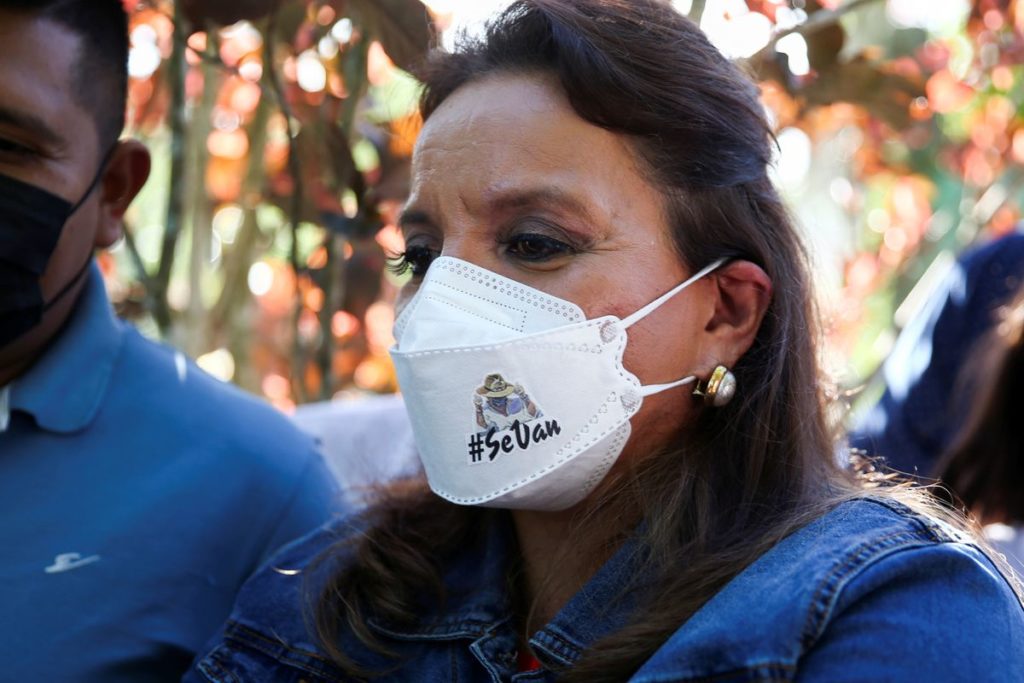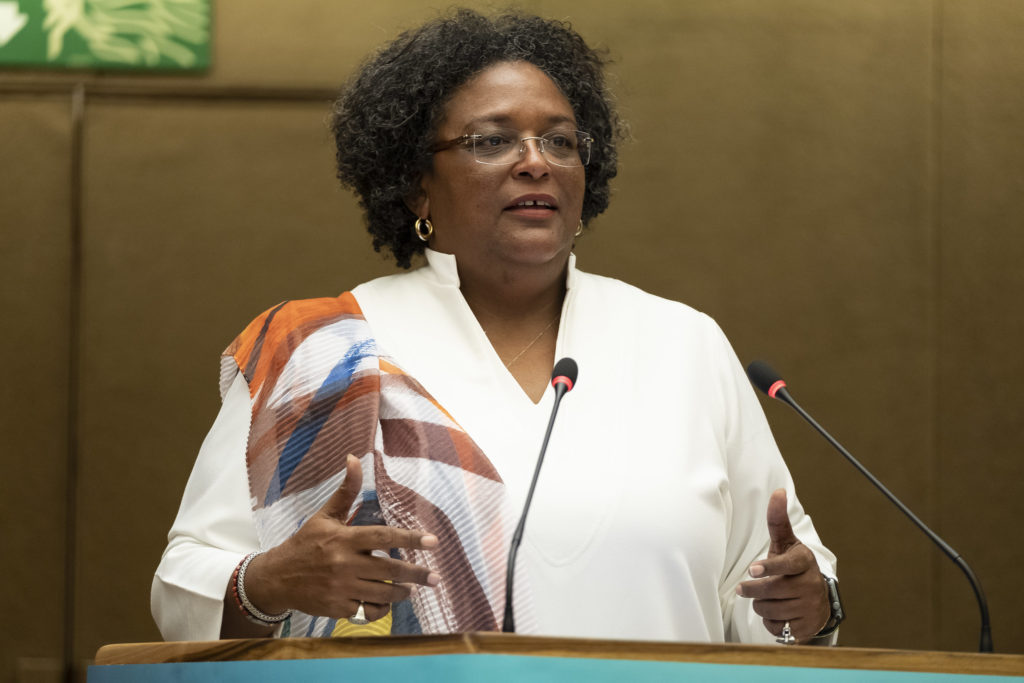
Xiomara Castro
On Sunday, November 28, 2021, Hondurans went to the polls and decided to move forward, rather than return to the past or remain in the corruption- and violence-soaked present. Hondurans voted, and in large number, for Xiomara Castro, the leftist Libre Party candidate. Castro’s victory was announced Monday, November 29, 2021. Meanwhile, at the stroke of midnight, November 29, 2021, the island country of Barbados will become the independent island republic of Barbados. This move from the last, and hopefully dying, whisp of colonialism to the full breath, and breadth, of autonomy and self-determination has been shepherded by Prime Minister Mia Mottley, of the Barbados Labour Party, and President Sandra Mason. At 12:01 am, November 30, Barbados becomes a fully independent republic. Since 1966, Barbados has celebrated November 30 as Independence Day, commemorating the day in which Barbados “was granted’ independence from the United Kingdom. This year, Barbados isn’t receiving independence, it’s seizing it.
Xiomara Castro is the first woman to be elected President of Honduras. Xiomara Castro is the first President to be democratically elected on a socialist platform. Castro has proposed a Constituent Assembly to rewrite the Constitution, a reinvigoration of international investigations of corruption, and a relaxation of some abortion restrictions. Castro has called for more independence for prosecutors. She has also called for reducing bank charges for remittances. Equally importantly, she has offered the country and the nation the prospect of unity across differences rather than the current State policies of intimidation, harassment, persecution, violence and death. Xiomara Castro has offered the vision and practice of participatory democracy, in which all sectors engage as mutual equal actors and in which no one, and no group, is excluded. On Sunday, Xiomara Castro explained, “For 12 years the people resisted, and those 12 years were not in vain. God takes time but doesn’t forget. Today the people have made justice.”
Barbadians have waited and prepared for full independence for decades, formally since 1966 but actually since the arrival of the British colonists who practically invented sugar plantation capitalism on the island of Barbados, which is to say first engaged in large scale enslavement of native populations in order to enrich `the Mother Country’, England. While discussions of removing the Queen from her position as head of state had long been simmering, 2020 saw a change: Black Lives Matter. In 2020, activists, organizers and just plain folk began demonstrating around the state of Lord Horatio Nelson, which stood in the heart of national heroes’ square. When earlier, activists had protested that Nelson was a leading proponent of the legitimacy and utility of slavery and the slave trade, the government turned the statue around, so as not to face the city. That was 1990. Thirty years later, the people said, “Enough! Thirty years is enough. Too much, in fact.” Last year, thanks to local Black Lives Matter activists, the statue came down. At its removal, Prime Minister Mia Mottley held up her phone, showed the crowds her screensaver, a picture of Bob Marley, and explained it was “to remind me always that the mission of our generation is the mental emancipation of our people”. That same day, Mia Mottley announced that in a year’s time, Barbados would remove the Queen as head of state and replace her with an elected President.
For Honduras and for Barbados, the road ahead is predictably different, but right now, on the island and the mainland, in these two `small countries’, the people have decided, and they decided to move forward, they decided to sing.
Won’t you help to sing
These songs of freedom?
‘Cause all I ever have
Redemption songs
Redemption songs
Redemption songs

Mia Mottley
(By Dan Moshenberg)
(Photo Credit 1: Reuters / Jose Cabezas) (Photo Credit 2: Global Voices / Timothy Sullivan / UNCTAD)